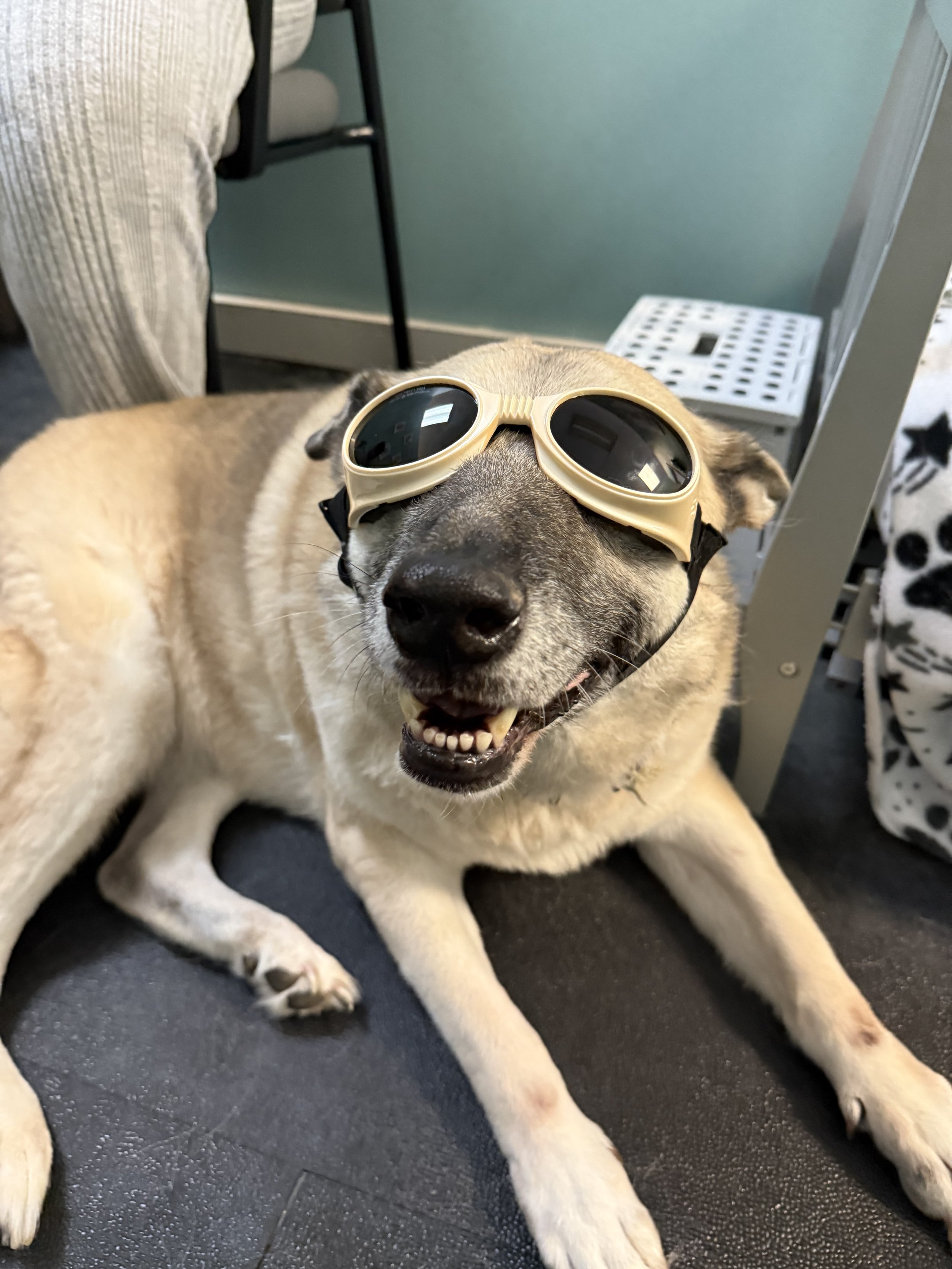Pain in Pets: What is Looks Like (Even Without Limping!)
Our spotlight kiddo of the week-Sasha! Welcome to AARF-Danville, VA!
Because our pets can’t always tell us when it hurt!
As pet parents, we’d do anything to keep our companions comfortable and happy. But here’s the challenge: our pets are experts at hiding pain!
Unlike us, they don’t always cry out or limp right away. Instead, pain often shows up in subtle shifts— small changes in movement, posture, or behavior that are easy to dismiss as “just getting older”
But here’s the truth: catching these signs early can make all the difference in keeping your pet mobile, pain-free, and thriving!
Subtle Signs of Pain in Pets
Movement Signs
Walking slower than usual
Hesitating on stairs or avoiding jumping up
Difficulty rising after rest
Shortening stride (walking different) or shifting weight
Behavioral Signs
Sleeping more
Playing less
Licking or chewing on their body, especially joints or paws
Growling, hiding, crying or resisting touch
Acting “not themselves”
Postural Signs
Hunched back or tucked tail
Holding head or neck stiffly
Favoring, one side or shifting weight off a leg
These aren’t just quirks of aging- they’re your pet’s way of saying “Something Hurts!”
There are also scales to help your rate your dog’s pain such as the Canine Pain Scale by Colorado State and BEAP Pain Scale. These are similar to the 1-10 scale we are often asked when we go to the doctor.
*Please note, there are also other tests/assessments we use to assess quality of life, pain affecting mobility, etc and will go over those with you as appropriate
Why Pets Hide Pain
Simple! It’s instinct! In the wild, showing weakness means being vulnerable. Even our beloved pets carry that survival mechanism. They adapt quietly until pain becomes too much to hide or more breakdown occurs! Some dogs are more stoic than others and can hide things differently than others too! Just as humans have varied pain thresholds, dogs do too. But all dogs can get trapped in a pain cycle and system breakdown if we don’t intervene appropriately That’s why early recognition and support are so important!
How Rehab Relieves Pain
At Aligned Animal Rehab and Fitness, LLC we specialize in finding and treating the root causes of mobility issues, even before they become obvious limps! Our gentle therapies can:
Ease stiffness through manual therapy
Reduce inflammation through laser and modalities
Rebuild strength with target exercises
Restore balance and confidence through proprioception training
Work closely with your vet to help address pain management from all angles. Your vet will address pain through medical management such as medication, supplements, etc as they deem appropriate.
Help with home recommendations to allow your pet to move easier and with more confidence.
Together, these approaches not only help to manage pain, but can help reduce risk of future or worsening injuries!
Your pet doesn’t have to limp to need help. If you’ve noticed subtle changes in how your animal moves, rests or behaves, rehab can make all the difference! Because when pain is addressed-joy returns!
Contact us to book a consultation or learn more about how physical therapy can make all the difference for your dog’s mobility.
Because your pet deserves comfort, connection, and a body that supports the beautiful life they’re here to live!
